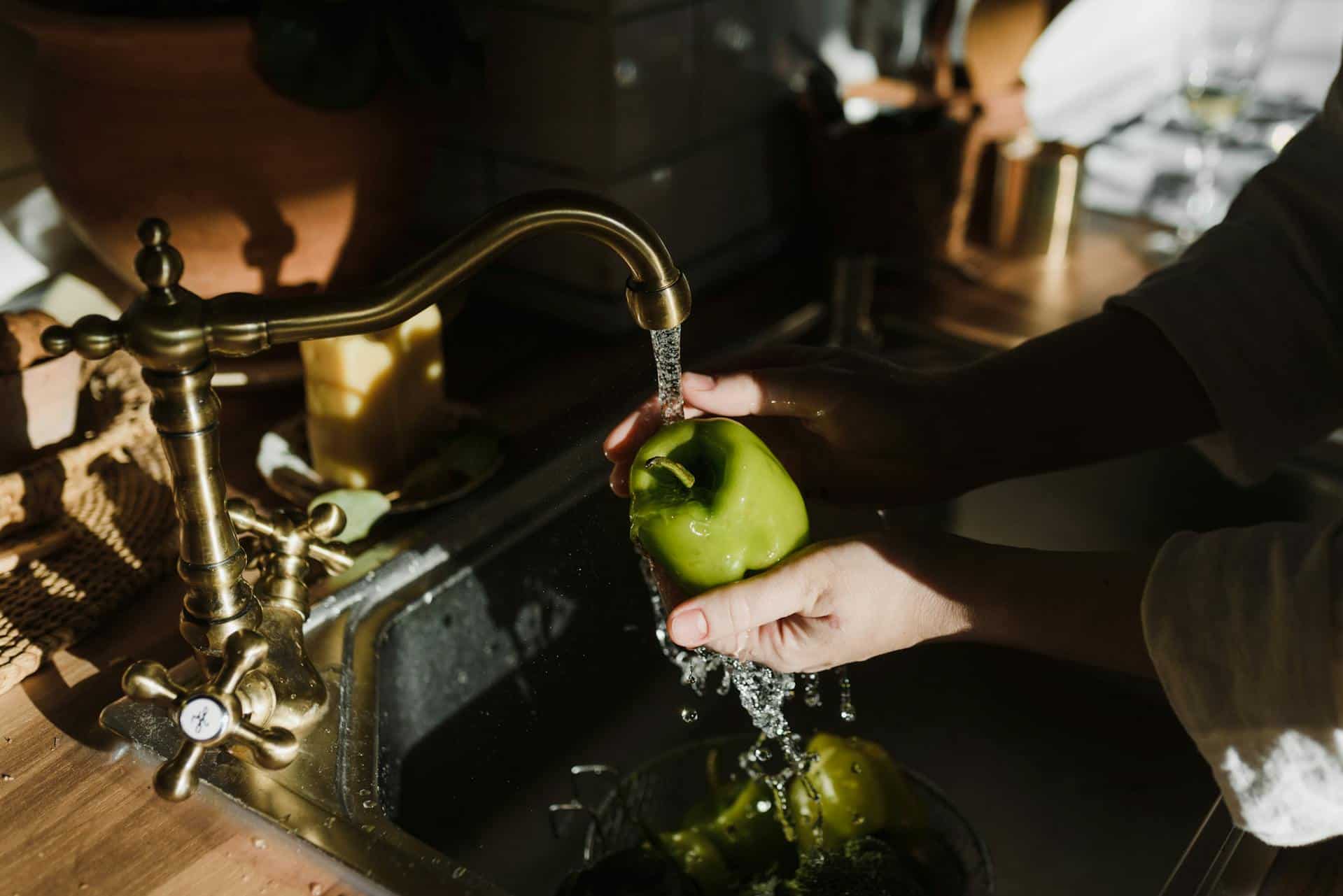
Question: Why Does My Kitchen Drain Smell Bad?
Answer: Your kitchen drain may smell bad due to odours often stem from trapped food debris, grease buildup, or dry P-traps. Bacteria feeding on this organic matter produce the unpleasant smell.
Common Kitchen Drain Odour Culprits
A foul-smelling kitchen drain disrupts daily life. This article explores common causes and offers simple solutions. We’ll examine how food debris, grease buildup, biofilms, and plumbing issues contribute to unpleasant odours. You’ll learn practical steps to eliminate these smells and maintain a fresh, clean kitchen.
Food Debris and Grease Buildup
Food particles trapped in your drain decompose, producing foul odours. Grease congeals in pipes, trapping food and creating a breeding ground for bacteria. This combination intensifies the smell. Regular cleaning prevents this buildup.
Flush the drain with hot water:
After each use, flush the drain with hot water for one minute. This helps wash away fresh food particles and grease.Use a drain strainer:
A strainer catches food scraps before they enter the drain, significantly reducing buildup and odour.Periodically clean the drain:
Pour a mixture of baking soda and vinegar down the drain, followed by hot water. This helps break down grease and eliminate odours.
Click this link to read more about Blue Kitchen Refacing
Related Article: How Do You Fix a Slow Draining Kitchen Sink?
Related Article: How Do I Increase Water Pressure in My Kitchen Sink?
Plumbing Problems and Dry P-Traps
A dry P-trap allows sewer gases to enter your kitchen. The P-trap, a U-shaped pipe under your sink, usually holds water, blocking these gases. If the water evaporates, odours escape. Other plumbing issues, such as blockages and vents, can also cause smells.
Maintain P-trap water level:
Regularly run water down the drain, especially if the sink is used infrequently. This ensures the P-trap remains filled.Check for leaks and clogs:
Inspect pipes for leaks and address any clogs promptly. These issues can disrupt water flow and create odours.Ensure proper vent function:
A properly functioning vent system allows air to circulate, preventing sewer gases from entering your home.
Garbage Disposal Issues
If you have a garbage disposal, food particles can stick to its components and create unpleasant odours. Improper disposal practices, like putting fibrous or starchy foods down the disposal, can worsen the problem.
Clean the disposal regularly:
Grind ice cubes and citrus peels to freshen and clean the disposal blades and chamber. Baking soda and vinegar can also help deodourize.Avoid putting certain foods down the disposal:
Refrain from grinding fibrous foods (celery, potato peels) and starchy foods (pasta, rice) as they can clog the disposal and cause odours.Flush the disposal with cold water:
After using the disposal, run cold water for a minute to flush away food particles.
Preventing Future Drain Odours
Preventing drain odours is easier than eliminating existing ones. Simple habits like regularly cleaning the drain, avoiding pouring grease down the sink, and using drain strainers make a significant difference.
Establish a cleaning routine:
Clean the drain weekly with hot water, baking soda, and vinegar to prevent buildup.Dispose of grease properly:
Collect grease in a container and dispose of it in the trash, not down the drain.Use drain strainers consistently:
Drain strainers are a simple but effective way to prevent food particles from entering the drain.
Conclusion
By understanding the causes of kitchen drain odours and taking preventative measures, you can keep your kitchen smelling fresh and clean. Addressing these issues promptly helps avoid more serious plumbing problems down the line. If you’ve tried these solutions and the smell persists, contact a plumber to investigate potential underlying plumbing issues.

Blue Malue Get in touch with Blue here.
